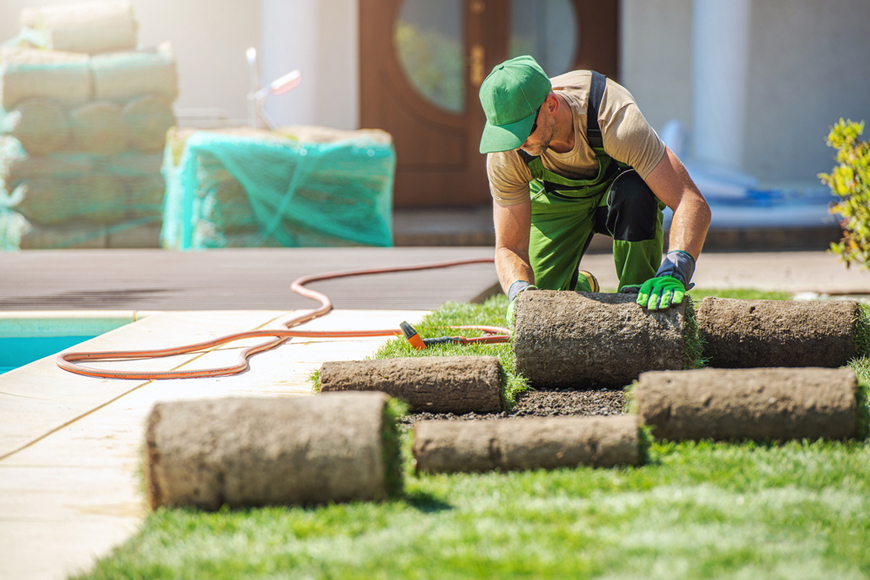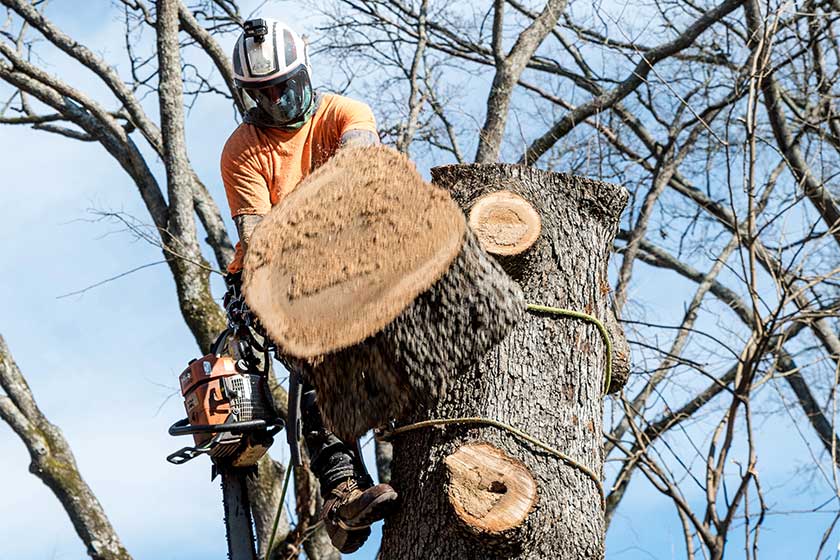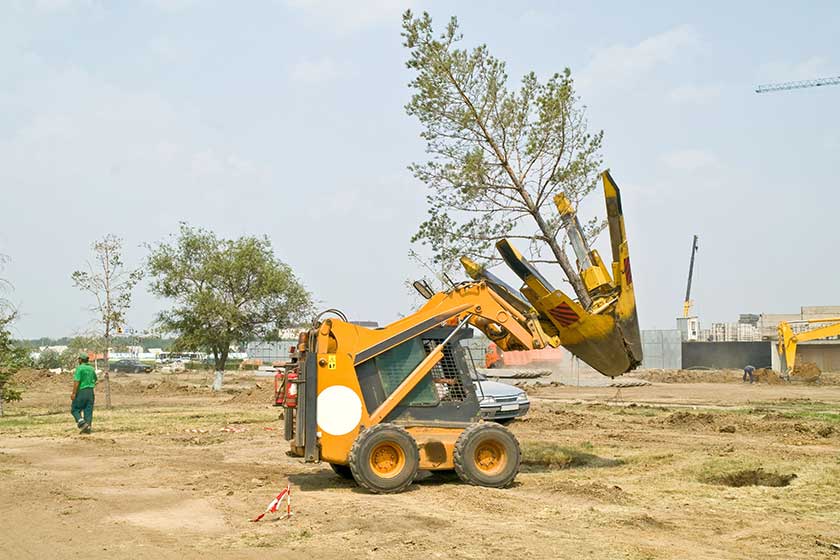Landscaping creates outdoor spaces that are not only beautiful but also functional and durable. One important aspect of successful landscaping is grading. It often goes unnoticed because the finished work hides the foundation beneath, but grading impacts every detail of your landscape, from water drainage to soil stability.
However, what is grading landscape? It’s the process of shaping the ground to prepare for landscaping, manage water flow, and prevent erosion. Knowing its role guarantees that your landscape stands the test of time while maintaining its visual appeal.
At Covenant Landscapes, we specialize in creating well-designed and functional outdoor spaces. From tree care to grading services, we help homeowners in Nashville and surrounding areas achieve landscapes that reflect their vision and needs.
Why Landscape Grading Matters
Grading is a foundational step in landscaping that helps shape the land to meet specific design and functional goals. It isn’t just about making the land look good, it also addresses problems such as poor drainage, uneven terrain, or soil erosion.
Without proper grading, you could face long-term issues like water pooling near your foundation, damaged plants, or structural problems with hardscaping elements. Addressing these issues early through grading saves you time, money, and frustration.
This process involves adding or removing soil to create slopes or level surfaces. A well-graded landscape directs water away from your home, supports planting beds, and creates the perfect base for patios, walkways, or lawns. Professional grading guarantees that the land’s natural contours align with the goals of your project.
What is Grading Landscape’s Role in Drainage?
Grading plays a vital role in managing water flow on your property. Poorly graded landscapes can lead to water pooling in unwanted areas, potentially causing foundation damage, mold, or mildew. A properly graded surface channels rainwater and runoff away from your home and into appropriate drainage systems. If you need a flat area for planting or a gentle slope for water control, grading adjusts the land to meet those needs.
Grading can also integrate drainage solutions like French drains or dry wells. Combining the right slope with these systems helps water flow efficiently without disrupting the surrounding landscape. This integration minimizes the risk of erosion and promotes the long-term health of plants and soil.
Types Of Landscape Grading
Different grading techniques address various needs, guaranteeing that the final design aligns with the purpose of the landscape. Flat grading is ideal for hardscaping projects, such as patios or driveways, where a stable, level foundation is required. This type of grading eliminates unevenness. It reduces the risk of cracks or structural issues in hardscape elements.
Sloped grading is commonly used for managing water flow. By angling the land slightly away from buildings or planting beds, sloped grading prevents water from pooling around foundations and creates natural drainage paths. This is especially useful in areas prone to heavy rainfall or flooding.
Terracing is another form of grading designed for steep or uneven properties. It prevents erosion and allows for functional spaces like gardens or retaining walls by creating flat steps on a slope. This approach combines aesthetics and practicality, transforming challenging terrains into usable, visually appealing areas.
Soil Stability and Erosion Control
Erosion is a significant problem for ungraded or poorly graded land. When water flows over loose soil, it can wash away valuable nutrients, destabilize planting areas, and create unsightly gullies. Grading prevents this by reshaping the land to slow water flow and distribute it evenly. Stabilizing the soil helps protect your investment in plants, grass, and hardscapes.
In addition to shaping the land, professional grading may involve adding topsoil or mulch to reinforce stability. These materials not only improve soil health but also create a more polished and appealing finish. Proper grading combined with erosion-control measures offers a lasting solution to maintain your landscape’s integrity.
Preparing For Landscaping and Hardscaping
Grading is an important preparation step for any landscaping or hardscaping project. Without a stable and level base, patios, walkways, or planting beds may shift, crack, or settle unevenly over time. Grading creates the right conditions for successful installations. It reduces the likelihood of costly repairs down the line.
For planting areas, grading can enhance the soil’s ability to retain moisture while preventing over-saturation. Grading supports the growth and health of plants, shrubs, and trees by directing water where it’s needed most. It also sets the stage for seamless transitions between different elements of your landscape, such as connecting a lawn to a paved walkway or garden bed.
Professional Grading Services: Why They’re Worth It
Grading requires specialized knowledge and equipment to achieve precise results. Professionals assess your property’s natural contours, soil type, and intended use before developing a grading plan. They use machinery like Bobcats and excavators to move and shape the soil efficiently. Their expertise guarantees that the slopes and levels are accurate, avoiding issues that can arise from improper grading.
Hiring professionals also saves time and effort. Grading can be labor-intensive, particularly for large properties or complex designs. Professional teams have the experience to complete the work quickly without sacrificing quality. They also incorporate erosion-control measures and drainage solutions during the grading process, adding value to your investment.
Costs And Considerations
Landscape grading costs vary depending on factors like the size of the property, the type of grading needed, and the condition of the soil. Grading may cost a few hundred dollars for small projects, while larger, more complex projects can run into the thousands. Features like retaining walls, additional topsoil, or specialized drainage systems may add to the expense.
Despite the costs, grading is a worthwhile investment that enhances the longevity and functionality of your landscape. Addressing issues like drainage and erosion early can prevent expensive repairs in the future. Consulting with a professional grading service gives you a clear understanding of the scope and cost of your project.
Post-Grading Considerations
After landscape grading, taking the right steps will help in keeping your property stable, functional, and visually appealing. Stabilizing soil is a priority, as newly graded land is vulnerable to erosion. Applying mulch, planting ground cover, or using erosion control blankets helps keep the soil in place while it settles.
Planting grass or installing sod is another effective way to achieve stability. Grassroots bind the soil and create a polished look. For long-term stability, maintaining graded land is important. Regularly inspect the area for signs of erosion or pooling water and address issues promptly. Grading helps your yard serve as a clean canvas for landscaping projects. It creates smooth transitions between hardscapes, gardens, and other elements.
For sloped or graded properties, incorporating terraces, retaining walls, or tiered gardens offers usable space while enhancing aesthetics. These steps not only maintain the integrity of the grading work but also help you achieve a beautiful and functional outdoor space.
Long-Term Benefits of Proper Grading
Well-executed grading offers numerous long-term benefits for your property. It creates a safe, attractive environment that resists erosion, promotes healthy plant growth, and reduces maintenance needs. Proper grading protects your home’s foundation from water damage and gives a stable base for landscaping and hardscaping elements.
A professionally graded landscape also increases your property’s value. Potential buyers recognize the importance of functional, well-maintained outdoor spaces, making grading an investment in both your home’s aesthetic appeal and resale potential. By taking the time to address grading, you set the stage for a landscape that looks great and performs well for years to come.
If you would like to know more about our landscaping services and more lawn care solutions at Covenant Landscapes, contact us today.



